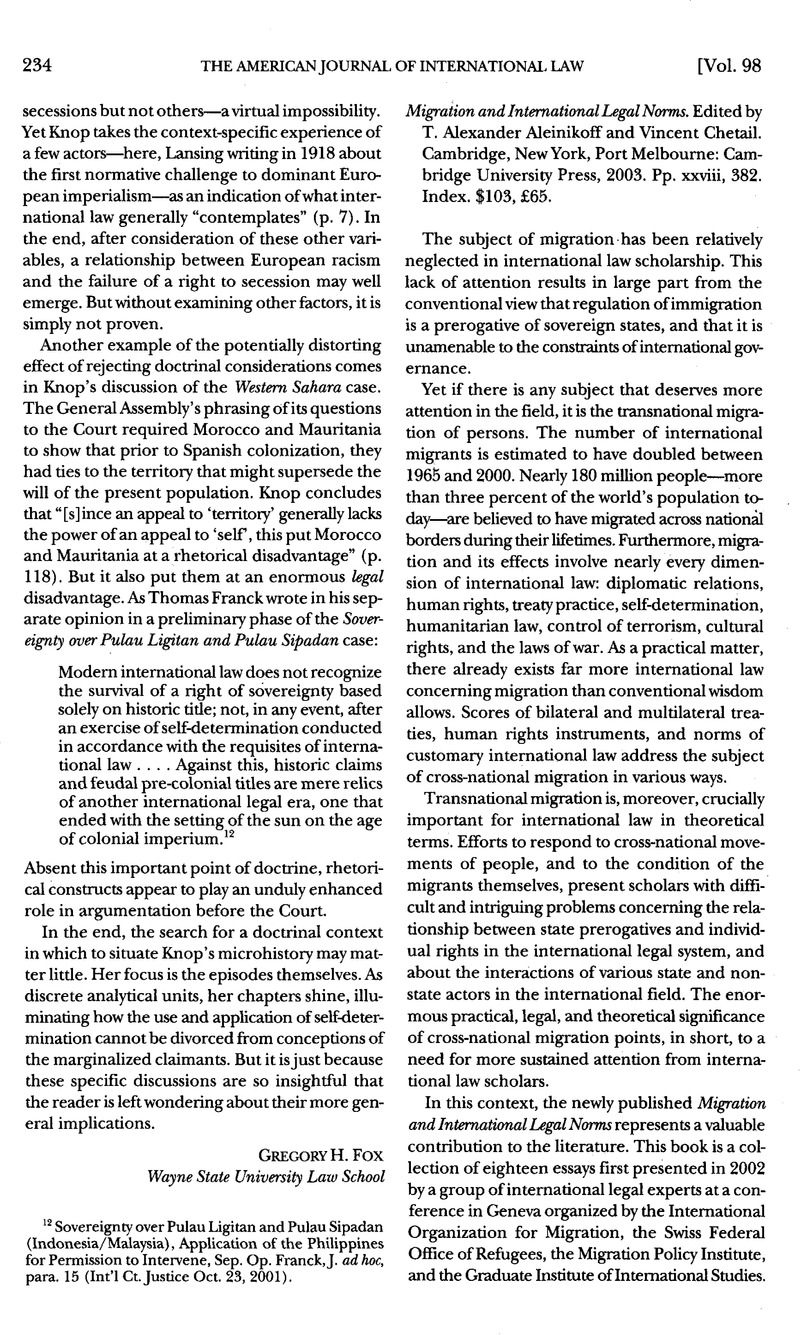No CrossRef data available.
Published online by Cambridge University Press: 27 February 2017

1 The International Convention for the Protection of the Rights of All Migrant Workers and Members of Their Families has been ratified to date by twenty states. UN Doc. A/RES/45/158 (1991). Notably, however, all signatories are countries of emigration rather than immigration.
2 The Migrant Workers Convention extends a range of civil rights and employment-related protections to “all migrant workers and members of their families.” These include rights to due process in criminal proceedings, free expression and religious observance, domestic privacy, equality with nationals before the courts, emergency medical care, education for children, respect for cultural identity, and process rights in the detention and deportation contexts. They also include the rights to enforce employment contracts against employers, to participate in trade unions, and to enjoy the protection of minimum hour and wage legislation in the workplace. (Part III, Articles 8-35).
3 For a discussion of how the threat of expulsion may serve to undermine the rights of migrants, see Linda, S. Bosniak, Human Rights, State Sovereignty and the Protection of Undocumented Migrants Under the International Migrant Workers Convention, 23 Int’l Migration Rev. 737–70 (1991).Google Scholar